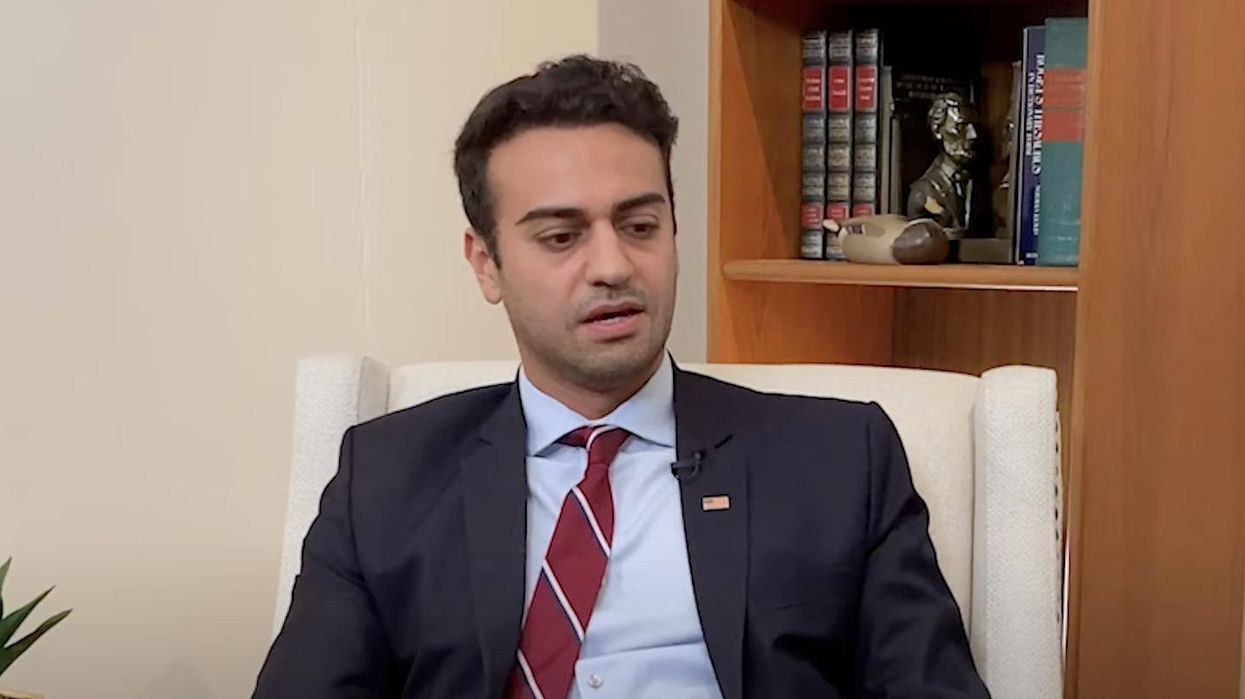Arizona GOP Attorney General Nominee Vows To Enforce Total Abortion Ban
Abraham Hamadeh said he would enforce the state's total ban on abortion at a time when most voters believe it should be legal to some degree.
The Republican seeking to be the top law enforcement officer in Arizona said that if elected, he would enforce the state's near-total ban on abortion currently on the books.
"I think we have to understand the role of the attorney general. As attorney general, I enforce the laws," Abraham Hamadeh, the GOP nominee for attorney general, said Wednesday night during a debate with Democratic attorney general nominee Kris Mayes in Phoenix. "We have to understand the role of attorney general is not to set policy. So I currently agree with [Attorney] General [Mark] Brnovich's position that the law is the law. You know, I don't want to make the law. That's the job of the Legislature."
Hamadeh, who says that the 2020 presidential election was "rigged" against former President Donald Trump and has Trump's endorsement, went on to call Mayes' vow not to enforce the ban "dangerous."
"People are electing us to actually uphold the law," Hamadeh said.
Abortion in Arizona is prohibited in all instances, except if the life of the pregnant person is at risk, after a judge in the state ruled on Sept. 23 that a Civil War-era ban from 1864, decades before Arizona became a state, could go into effect.
The ban, which was codified in 1901, states, "A person who provides, supplies or administers to a pregnant woman, or procures such woman to take any medicine, drugs or substance, or uses or employs any instrument or other means whatever, with intent thereby to procure the miscarriage of such woman, unless it is necessary to save her life, shall be punished by imprisonment in the state prison for not less than two years nor more than five years."
The ban had been blocked by the Supreme Court's 1973 ruling in Roe v. Wade, which affirmed the constitutional right to an abortion before fetal viability, or around 24 weeks' gestation. After the Supreme Court's decision in Dobbs v. Jackson Women's Health Organization in June that overturned Roe, an Arizona Superior Court judge ruled that the law can once again go into effect.
At the debate, Mayes criticized Hamadeh for his vow to enforce the abortion ban.
"Look, I think my opponent just admitted that he thinks it's ok to ban all abortions in the state of Arizona under a law that dates to 1864," Mayes said. "Let's remember, that was the Civil War. It was a time when women couldn't even vote and women are going to die. Women and girls are going to die because of this 1901 law and people like my opponent and [current Republican Attorney General] Mark Brnovich are forcing it on women of the state of Arizona."
Abortion has become a major issue in the 2022 midterm elections following the Supreme Court's reversal of Roe.
Polling finds voters disapprove of the Roe reversal by wide margins, and support for abortions has increased since the constitutional right to the procedure was stripped away.
In Arizona, a new poll released on Tuesday found that 91% of registered voters in the state want abortion to be legal in at least some circumstances.
Arizona will be one of the key battlegrounds in November. Republicans seek to maintain control of both the attorney general's office and the governor's mansion.
The state has grown more and more competitive in the past decade. In 2020, President Joe Biden became the first Democratic presidential nominee to win Arizona in more than 20 years, and Democrats won control of both of the state's Senate seats for the first time in almost 70 years.
The University of Virginia Center for Politics says the race is competitive and will likely mirror the outcome of Arizona's toss-up gubernatorial election, in which anti-abortion GOP nominee Kari Lake is facing off against Democratic Secretary of State Katie Hobbs.
"Observers expect that Arizona's Trump-aligned GOP ticket will either succeed or fail in unison, given the similarities in their views and rhetoric," the Center for Politics' Louis Jacobson wrote earlier in September. "Polling may eventually show differently, but for now, we're considering this a competitive contest."
Reprinted with permission from American Independent.









